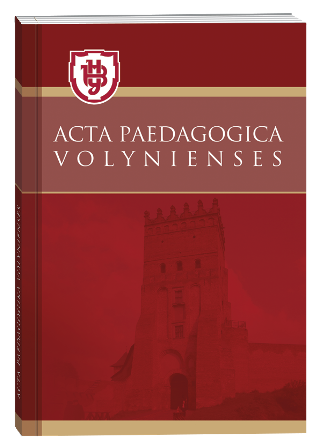ECONOMIC EDUCATION OF PRIMARY SCHOOL PUPILS BY MEANS OF MATHEMATICS
DOI:
https://doi.org/10.32782/apv/2022.6.9Keywords:
economic education, economic beliefs, tasks of economic content, forms and methods of teaching mathematicsAbstract
The state of development of the problem of economic education in the process of studying the elementary course of mathematics has been clarified. Methodological features and didactic conditions of economic education of younger schoolchildren during the study of mathematics are determined. The assimilation of elementary economic knowledge by pupils, the development of the ability to use this knowledge in practice, the ability to predict the results of one's work, and the cultivation of a culture of behavior in the conditions of a market society are important tasks of the New Ukrainian School. An important point in the organization of economic education of pupils during the study of mathematics in elementary grades is the definition of its content. Determining the structure and content of a person's economic activity makes it possible to select the necessary prerequisites and conditions for the organization of economic education in the process of studying mathematics. Taking into account the general requirements for the educational process, the principles of economic education, as well as the conditions for the formation of relevant beliefs, made it possible to formulate the main principles of selecting economic information. The forms of educational activity of schoolchildren that will contribute to the effective formation of economic knowledge in pupils during the teaching of mathematics have been analyzed. In particular: solving plot problems selected by the teacher; compilation of problems by the students themselves and their independent solution; announcement of short interesting facts in lessons; excursions to local productions, parks; conversations, mornings, educational hours, quizzes, competitions. An important requirement for the choice of teaching methods is that they should stimulate interest in mathematical and economic material, develop the motivation of schoolchildren for relevant economic activity. The implementation of these requirements is facilitated by the use of cognitive games, the creation of appropriate emotional and moral situations both in lessons and outside of class. It is emphasized that economic education in elementary school has a scientific, illustrative and practical character. An experimental study in an elementary school showed the effectiveness of the proposed methodical methods of economic education of younger schoolchildren in the process of learning mathematics.
References
Бірюкова Н. В. Людина в світі економіки / Початкова школа. 2004. № 10. С. 59–61.
Богданович М. В. Задачі з економічним змістом/ Початкова школа. 2000. № 9. С. 41–45.
Гільберг Т. Г., Скочеляс Є. І., Юхимович О. А. Вивчаємо економіку / Початкова освіта. 2005. № 10. С. 15–21.
Гільберг Т. Г., Скочеляс Є. І., Юхимович О. А. Економіка для молодших школярів. Навчальний посібник / Кам’янець-Подільський: Абетка.- НОВА, 2005. 132 с.
Давыдов В. В. Виды обобщений в обучении / М. : Просв., 1972. 423 с.
Лукаш С. В. Педагогічне розуміння економічного мислення / Педагогіка і психологія. 1999. № 1. С. 14–26.
Сигида С. В. Уроки економіки у початковій школі / Економіка. 2005. № 2. С. 21–22.
Слободянюк Н. Г. Основи економічних знань у початкових класах / Початкова школа. 2003. № 11. С. 20–21.
Солдатова Л. Дидактичні ігри з використанням економічної термінології / Початкова школа. 2000. №6. С. 27–28.
Формування економічного мислення молодших школярів. Методичні знахідки вчителів початкових класів з поглибленим вивченням основ економіки / Упор.: Палига О. В., Джус М. В. Тернопіль: Мандрівець, 2009. 136 с.







